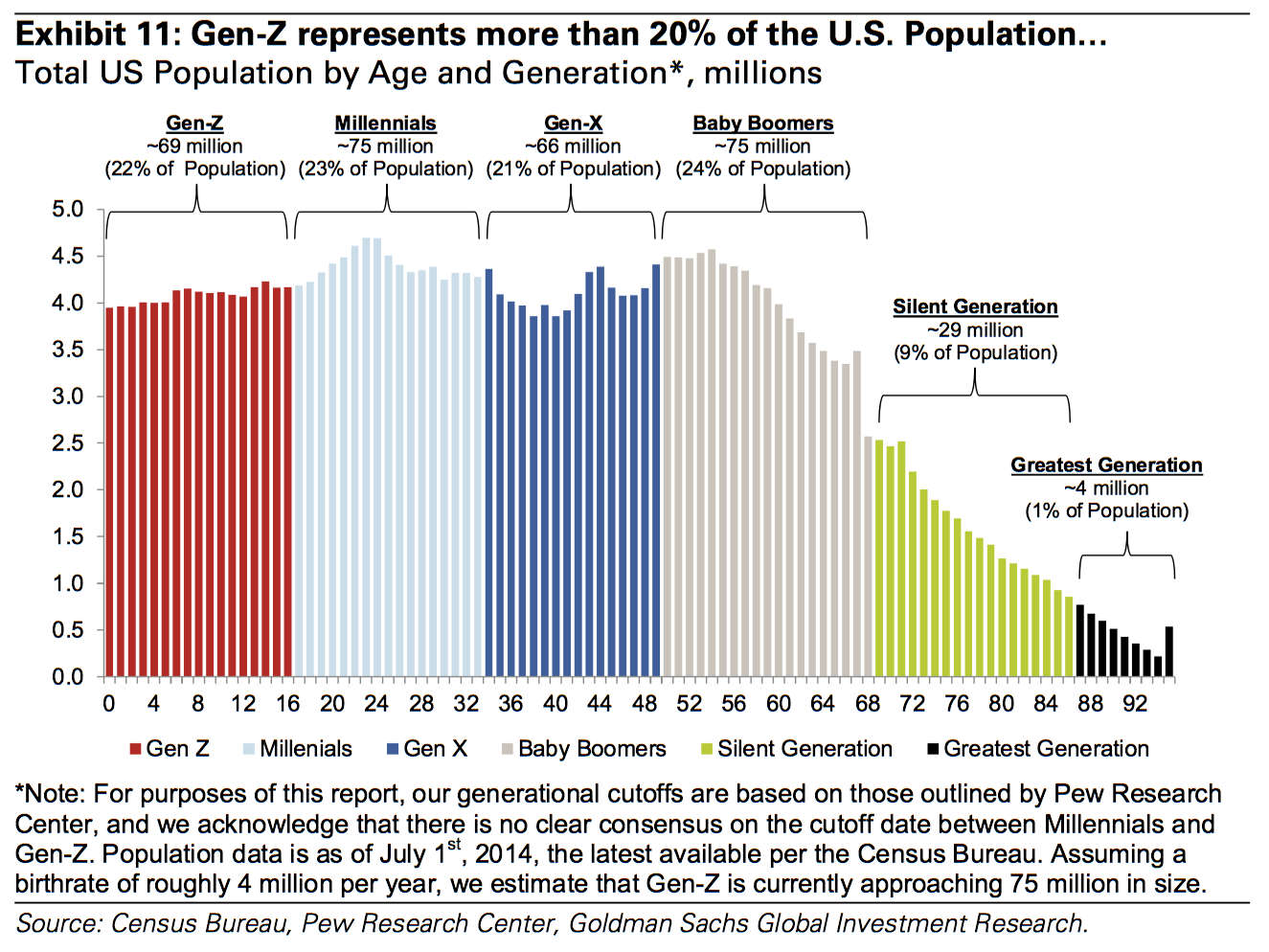In what has to be interpreted as a signal to the tens of thousands of workplace/leadership/management professional speakers and pundits out there that it is time (finally), to update those PowerPoint decks from 2009, it looks like we need to stop or at least slow down our collective fixation with Millennials.
Take a look at today's Chart of the Day, courtesy of the fine folks at Goldman Sachs and let's together pour one out for the Millennials and raise one up for what is coming next. Here's the chart and as you have persistently demanded, some comments from me after the data:

Awesome looking chart, right? And from the looks of it, it is time to stop worrying so much about the Millennials and start thinking about Gen Z! What might this mean to the rest of us - besides all the 'Generations in the Workplace' people that need to update their slides I mean?
I have three quick takes, then like the Good Gen X-er I am have to go make the donuts...
1. Technology - this is the first 'post-internet' generation. They have never known a world without almost constant connectivity, ubiquitous wifi, and life attached to their devices. Waiting for any kind of information is something they are not used to, nor will tolerate very well. Everything has to move faster, be more easily consumable, and actionable. If you thought the Millennials were annoying, just wait until your first set of Gen Z employees comes through the doors, (very soon), and laughs at your antiquated set of systems and processes.
2. Diversity - In line with the increasing diversity in the population overall, Gen Z will be the most diverse generation in US history. According to Goldman, the majority of Gen Z will be non-white by 2020 or so. And with this diversity in composition, it seems likely that Gen Z-ers will also be the most accepting of diverse workplaces and teams. In fact, many of them will not even consciously think about 'diverstiy' in the ways that Gen X and Boomers always have, (and have needed to). To Gen Z, the team won't really seem 'diverse', it will just seem like 'the team.' I am not smart enough to know exactly what that means for corporate diversity and inclusion efforts, but I bet it will mean something.
3. Backlash - In about three minutes from now, someone will take a shot at me or at this post for 'generalizing about the generations'. This person will probably be an older Gen X-er or possibly a Boomer. These people are cranky and should be ignored. Yes, I know not every Gen Z-er is the same and not every Boomer is some kind of Luddite. EVERYONE knows this. The point of talking about generational groups and trends is not to try to explain the motiviations and actions of EVERY SINGLE PERSON IN THE WORLD. The point is to try and make sense on a macro-level of how the shared experiences and enviroments of people who grow up in similar cultural, societal, and economic circumstances impact how they see the world and what that means for the world. And I think having that kind of understanding, or at least having the discussion, is important and valid.
Ok, that's it from me. What say you? Do you care about Gen Z at all? Or are you happy (like I am), not to have to figure out how to spell 'Millennial' all the time?